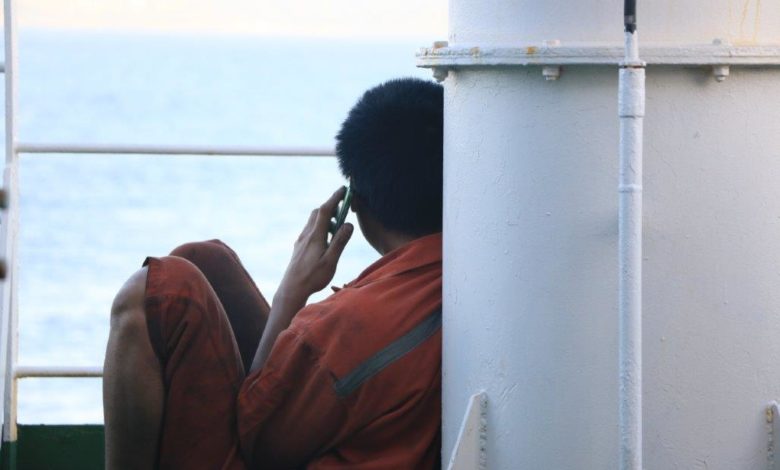New research finds charging of recruitment fees most common illegal practice experienced by seafarers

The results of a new study of seafarers launched today finds that over two thirds (70%) of seafarers who have experienced violations of their workers’ rights say they were either charged recruitment fees – an illegal practice that can result in significant levels of debt leading to forced labour conditions – or were victims of fake job offers after making advance payments.
The Seafarers and Recruitment Fees research briefing, published by the Institute for Human Rights and Business (IHRB) and the Sustainable Shipping Initiative (SSI), surveyed almost 5,000 seafarers between September 2022 and February 2023. The research shows that of those who experienced illegal charging of recruitment fees, the large majority (71%) did not report it, in most cases because they didn’t know where to report such abuses.
The survey was conducted by TURTLE and designed by TURTLE in conjunction with the Maritime Anti-Corruption Network (MACN).
Frances House, senior advisor at the IHRB, said: “No worker should have to pay for their own job. But the reality remains that far too many seafarers continue to confront the illegal practice of recruitment fees. With 90% of world trade carried by sea, there is almost no company immune from needing to carry out their own due diligence on the issue of recruitment fees – from the shipping industry itself to commodity companies and high-street brands. This research exposes just how prolific recruitment fees are for seafarers – the time has come to end this illegal practice, and we will continue to work to ensure respect for the rights of seafarers everywhere.”
To rid the industry of illegal recruitment fees and minimise the risk of forced labour among seafarers, the research findings point to important steps and recommendations.
Shipping companies need to ensure that seafarers employed on board their ships have not been charged recruitment fees to secure their work contracts.
Customers of shipping companies – including charterers, commodity companies and traders, and container cargo owners – must carry out human rights due diligence in line with the UN Guiding Principles on Business and Human Rights across their value chains – this includes their shipping suppliers.
As the payment of recruitment fees is prohibited under the Maritime Labour Convention, port state authorities must investigate any reports of the charging of recruitment fees.
Home states, where recruitment agencies are based, must ensure that recruitment agencies do not charge fees for jobs, and importantly must enact and enforce penalties for such practices.
Much greater awareness is needed of the illegality of the charging of recruitment fees, among seafarers, national authorities, ship operators and cargo owners.
Effective mechanisms are needed to penalise offending agencies and for remedy for seafarers who have paid illegal recruitment fees, including possibly, reimbursement by employers of fees already paid.
Seafarers need to know how and where to report such practices. Further qualitative research on this issue will be forthcoming from Mission to Seafarers.
Mark Dickinson, general secretary of seafarer union Nautilus International, said: “Recruitment fraud and job scams are outrageous practices that can leave seafarers jobless and/or in serious debt. The charging of recruitment fees to seafarers is expressly prohibited under the Maritime Labour Convention – if it is as widespread as this research indicates, then governments and the shipping industry must take urgent and determined action to stamp out this illegal practice.”
